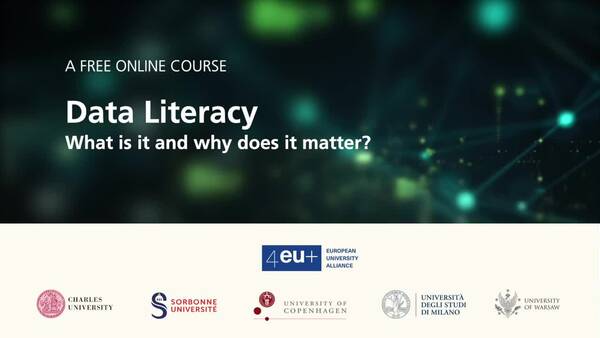Free Online Course: Data Literacy - What is it and Why Does it Matter?
Manage episode 312947204 series 1540312
Join now: https://www.coursera.org/learn/data-literacy-what-is-it-and-why-does-it-matter
About the Course:
You might already know that data is not neutral. Our values and assumptions are influenced by the data surrounding us - the data we create, the data we collect, and the data we share with each other. Economic needs, social structures, or algorithmic biases can have profound consequences for the way we collect and use data. Most often, the result is an increase of inequity in the world. Data also changes the way we interact. It shapes our thoughts, our feelings, our preferences and actions. It determines what we have access to, and what not. It enables global dissemination of best practices and life improving technologies, as well as the spread of mistrust and radicalization. This is why data literacy matters.
A key principle of data literacy is to have a heightened awareness of the risks and opportunities of data-driven technologies and to stay up-to-date with their consequences. In this course, we view data literacy from three perspectives: Data in personal life, data in society, and data in knowledge production. The aim is threefold: 1. To expand your skills and abilities to identify, understand, and interpret the many roles of digital technologies in daily life. 2. To enable you to discern when data-driven technologies add value to people’s lives, and when they exploit human vulnerabilities or deplete the commons. 3. To cultivate a deeper understanding of how data-driven technologies are shaping knowledge production and how they may be realigned with real human needs and values.
The course is funded by Erasmus+ and developed by the 4EU+ University Alliance including Charles University (Univerzita Karlova), Sorbonne Unviersity (Sorbonne Université), University of Copenhagen (Københavns Universitet), University of Milan (Università degli studi di Milano), and University of Warsaw (Uniwersytet Warszawski).
2599 episodes





